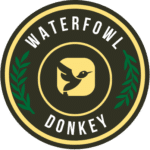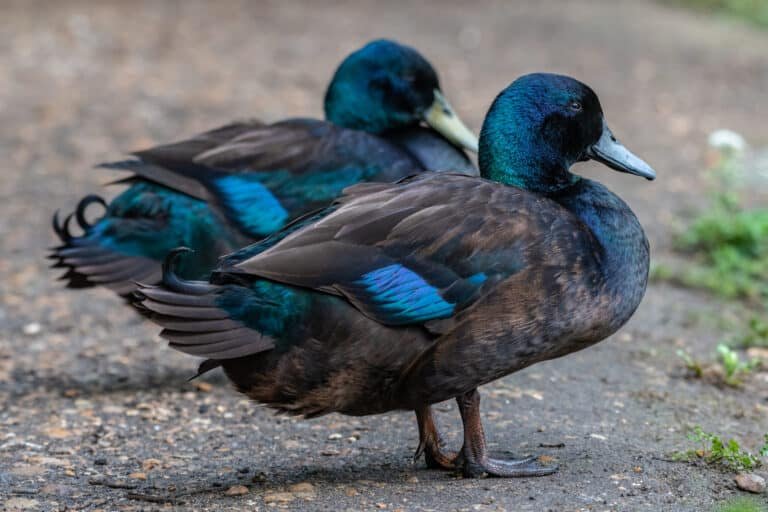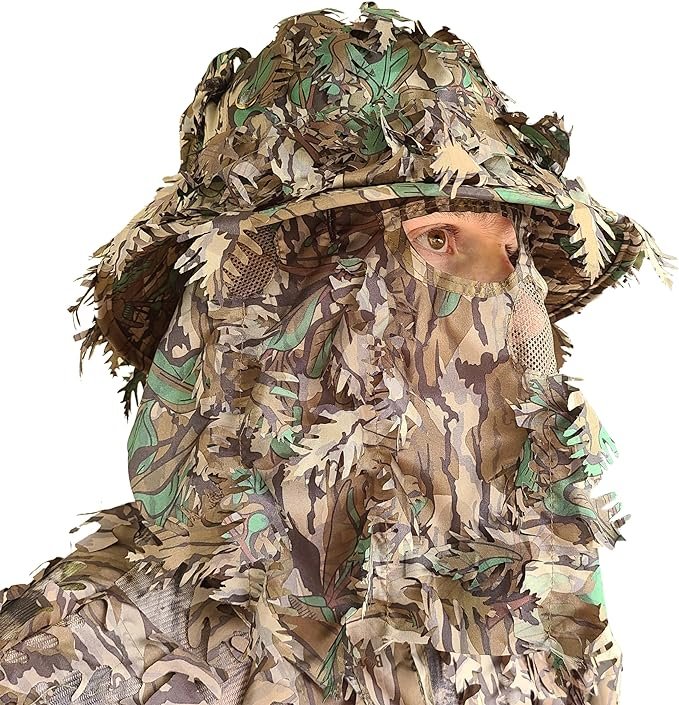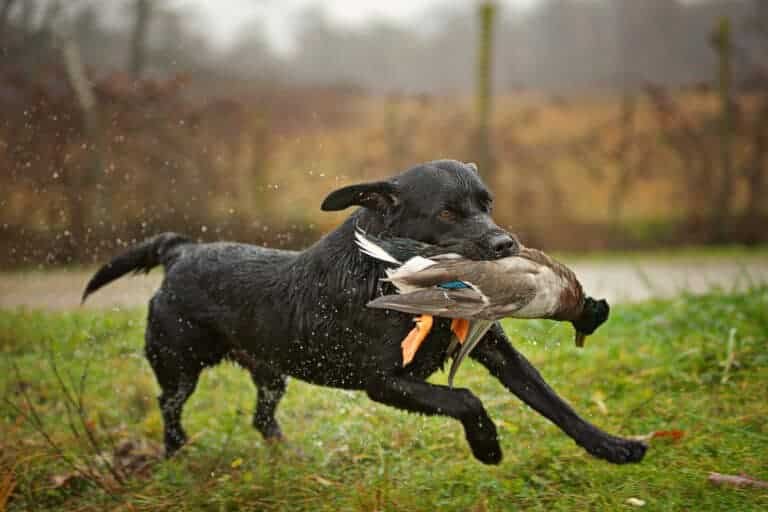Duck Hunting Dog: 5 Simple Reasons for Support
A duck hunting dog is a specially trained canine companion that assists hunters in locating, retrieving, and bringing back ducks during hunting expeditions. These loyal and skilled companions play an invaluable role in the art of waterfowl hunting.
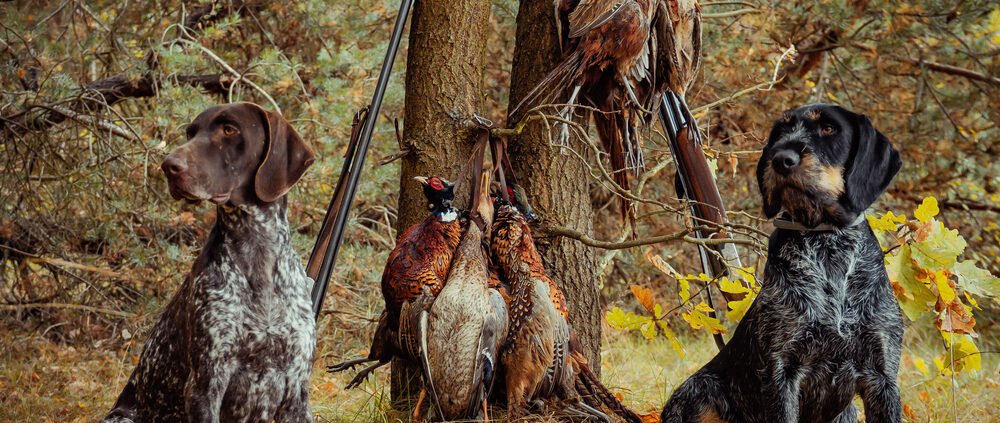
With their exceptional scenting abilities, swimming prowess, and obedience training, these dogs are an indispensable asset to hunters seeking a successful and ethical hunt.
A Trusted Partner in the Wild
The bond between a hunter and their duck hunting dog is one forged through countless hours of training, practice, and shared experiences in the great outdoors. These remarkable animals are not merely tools but trusted partners who enhance the thrill of the hunt while ensuring its sustainability.
Definition of a Duck Hunting Dog
A duck hunting dog is specifically bred or trained to assist hunters in locating and retrieving ducks during hunts. Unlike other types of working dogs or pets, these canines possess certain traits that make them particularly well-suited for this demanding task.
Physical Characteristics
Duck hunting dogs typically exhibit specific physical characteristics that enable them to excel in waterfowl retrieval tasks. Their webbed feet provide enhanced propulsion while swimming through various water bodies such as marshes, ponds, lakes, or even icy rivers.
Additionally, their waterproof double coat provides insulation against cold temperatures encountered during hunts in wet environments.
Mental Attributes
In addition to their physical traits, duck hunting dogs possess remarkable mental attributes that contribute to their effectiveness as avid retrievers. They have sharp senses with an exceptional ability to detect subtle scents emitted by wounded or fallen ducks amidst dense vegetation or vast bodies of water.
Their intelligence, paired with a strong work ethic enables them to remain focused on the task at hand even amid distractions.
Importance of a well-trained and skilled hunting dog
A well-trained and skilled duck hunting dog is not only a joy to work with but also an essential component of a successful hunting expedition. These dogs undergo extensive training to develop the necessary skills and behaviors that make them reliable partners in the field.
Efficient Retrieval
A properly trained duck hunting dog has the ability to track, locate, and retrieve ducks swiftly and efficiently. This ensures that no wounded birds are left behind, minimizing suffering and promoting ethical hunting practices. Their keen sense of smell allows them to pinpoint the exact location of downed birds even when visibility is low or compromised.
Improved Efficiency and Safety
Hunting alongside a well-trained dog significantly increases efficiency by reducing time spent searching for downed ducks. This allows hunters more opportunities for shots, leading to greater success in bringing home a bountiful harvest.
Moreover, these dogs serve as an extra layer of safety by alerting hunters to potential dangers or hazards in their surroundings, such as treacherous terrain or hidden obstacles. Duck hunting dogs are remarkable creatures with specialized abilities that make them invaluable companions for waterfowl hunters.
Through their physical attributes, keen senses, and extensive training, these loyal canines enhance both the effectiveness and ethics of duck hunts. In subsequent sections, we will explore the fascinating history of these dogs as well as delve into specific breeds renowned for their excellence in duck hunting.

History of Duck Hunting Dogs
Ancient Origins of Using Dogs for Hunting Waterfowl
Dating back to ancient times, the practice of using dogs for hunting waterfowl can be traced to civilizations such as the Egyptians, Greeks, and Romans. The Egyptian pharaohs were known to have employed feathered dogs, a breed specifically developed for waterfowl hunting, as depicted in their hieroglyphics. The Greeks had their own unique methods where they used large Molossian hounds to flush out ducks from the reeds into nets.
Similarly, the Romans utilized a variety of hunting dogs like the Bracco Italiano and Molossus breeds to assist in waterfowl retrieval during their pursuits. These early civilizations recognized the advantages that well-trained dogs could provide in improving hunting efficiency and maximizing yields.
Evolution and Development of Specific Breeds for Duck Hunting
As time progressed, specific breeds began to emerge that were specifically bred for duck hunting purposes. One such notable breed is the Labrador Retriever, which originated in Newfoundland in Canada during the 18th century.
These dogs were initially utilized by fishermen to retrieve fish and fishing nets but soon proved their exceptional skills as waterfowl retrievers as well. Selective breeding over generations refined their natural instincts and characteristics necessary for successful duck hunting.
Another breed that evolved is the Chesapeake Bay Retriever, which emerged from two Newfoundland puppies rescued from a shipwreck off the coast of Maryland in 1807. Developed specifically for retrieving waterfowl from icy waters around Chesapeake Bay, these dogs possess a thick double coat and webbed feet that allow them to withstand cold temperatures while swimming with ease.
Over time, other breeds such as Golden Retrievers were developed through careful breeding programs aimed at creating versatile gun dogs with excellent retrieving abilities. It is through this continuous evolution and selective breeding that specific traits and skills were honed, making these breeds invaluable assets for duck hunters in modern times.
Breeds of Duck Hunting Dogs
Labrador Retriever – The Most Popular and Versatile Breed for Duck Hunting
Known for their exceptional retrieving skills and friendly temperament, Labrador Retrievers have rightfully earned their place as the most popular breed for duck hunting. Their natural instincts, physical attributes, and trainability make them excellent waterfowl retrievers.
Labradors possess a strong drive to please their owners, making them highly trainable and obedient. They exhibit remarkable intelligence, enabling them to quickly learn commands and adapt to various hunting environments.
Additionally, Labradors have a water-resistant double coat that keeps them warm in cold water conditions. Their webbed feet aid in efficient swimming and powerful propulsion when retrieving ducks from lakes, rivers, or marshes.
Training Labrador Retrievers specifically for duck hunting involves focusing on their natural instincts and refining their retrieving abilities. Puppies should start with basic obedience training to establish a strong foundation of commands like sit, stay, recall, and heel.
Once basic obedience is established, more advanced training techniques can be implemented such as using dummy retrieves to enhance marking skills and teaching hand signals for precise direction control during retrieves. It is essential to expose Labrador Retrievers to various hunting scenarios early on so they become familiar with the sounds of gunshots and the sight of decoys.
Chesapeake Bay Retriever – Endurance in Cold Water Conditions
The Chesapeake Bay Retriever is a breed known for its incredible endurance in cold water conditions. Originating from the Chesapeake Bay area of Maryland in the United States, these dogs were specifically bred for duck hunting in harsh weather conditions where icy waters are common.
With a thick double coat that provides insulation against cold temperatures along with an oily outer coat that repels water effectively, Chesapeakes are well-equipped for lengthy retrieves even in frigid environments. The physical attributes of Chesapeake Bay Retrievers play a vital role in their effectiveness as duck retrieving dogs.
Their muscular build and powerful rear legs provide them with the necessary strength and propulsion to swim through strong currents or choppy waters. Additionally, their webbed feet allow them to navigate with ease in marshy areas or muddy terrains, making them excellent at reaching downed ducks in challenging locations.
Training techniques tailored to Chesapeake Bay Retrievers should focus on reinforcing their natural retrieving instincts, stamina, and endurance. Obedience training is crucial for establishing control during hunts, ensuring that they respond promptly to commands even when distractions are present.
To enhance their swimming capabilities, specific exercises such as water retrieves over long distances and gradually increasing the difficulty of retrieves can be incorporated into training sessions. It is essential to expose Chesapeakes to various water conditions early on so they become comfortable with different scenarios they may encounter during duck hunting expeditions.
Golden Retriever – Intelligent Breed With Natural Retrieving Instincts
The Golden Retriever’s intelligence and friendly nature make it a popular choice as a duck hunting dog. Known for its gentle temperament and loyalty, this breed possesses innate retrieving instincts that make them valuable assets in the field. Golden Retrievers have a strong desire to please their owners and excel at tasks requiring focus and dedication.
Their temperament significantly enhances their performance as duck hunting dogs by enabling effective communication with hunters while remaining calm during intense hunting situations. Golden Retrievers exhibit remarkable patience when waiting for commands and are quick learners when it comes to understanding hand signals or verbal cues from their handlers.
Training approaches for Golden Retrievers should capitalize on their intelligence, enthusiasm, and natural retrieving abilities. Basic obedience training lays the foundation for more advanced skills required during hunts.
Incorporating retrieving games early on helps develop teamwork between dog and handler while honing the dog’s ability to locate downed ducks efficiently. Training sessions should focus on reinforcing obedience commands, teaching them to retrieve ducks gently without damaging the game, and practicing steadiness during gunfire.
Providing mental stimulation through puzzle toys or scent-based challenges can also keep Golden Retrievers engaged and motivated during training sessions. Labrador Retrievers, Chesapeake Bay Retrievers, and Golden Retrievers are three popular breeds that excel in the art of duck hunting.
Their unique characteristics and traits combined with tailored training methods contribute to their success as skilled waterfowl retrievers. Whether it is the versatility of Labradors, endurance of Chesapeakes in cold water conditions, or intelligence of Golden Retrievers, these breeds offer hunters exceptional companionship and reliable performance in pursuing their passion for duck hunting.
Skills and Abilities Required in a Duck Hunting Dog
Excellent scenting abilities to locate downed ducks in dense vegetation or water environments
Duck hunting dogs must possess exceptional scenting abilities to track and locate downed ducks in challenging environments. The olfactory system in dogs is truly remarkable, as it allows them to detect scents with incredible precision. Dogs have around 300 million olfactory receptors compared to the mere 6 million in humans, granting them an unparalleled sense of smell.
To enhance their scenting capabilities, training techniques such as scent discrimination exercises can be employed. These exercises involve introducing dogs to various scents associated with ducks or decoys and rewarding them for correctly identifying and indicating the target smell.
Exceptional swimming skills to retrieve ducks from various water bodies
Being skilled swimmers is an essential attribute for duck hunting dogs, as they need to retrieve ducks from different water bodies such as lakes, rivers, or marshes. Certain physical attributes contribute to their swimming ability, including webbed paws that provide increased propulsion through the water and a buoyant body structure.
Swimming training exercises can aid in improving their swimming skills further. These exercises involve gradually introducing dogs to different water conditions, encouraging them to swim longer distances while fetching objects like floating dummies or decoys.
Obedience training and control during hunts
Obedience training is vital for ensuring that duck hunting dogs remain under control during hunts. Commands like sit, stay, and recall play a significant role in maintaining discipline and preventing any mishaps while working. Obedience commands allow hunters to direct their dogs effectively when navigating through dense vegetation or when retrieving multiple downed birds simultaneously.
Training methods such as positive reinforcement techniques using treats or verbal praise can help establish reliable obedience in duck hunting dogs. Consistency, patience, and repetition are key components of successful obedience training.
Conclusion
Duck hunting dogs possess a remarkable set of skills and abilities that make them invaluable companions in the pursuit of waterfowl. From their exceptional scenting abilities, which enable them to locate downed ducks hidden amidst dense vegetation or in water environments, to their exceptional swimming skills that allow them to retrieve game from various water bodies, these dogs are truly impressive.
Furthermore, the importance of obedience training and control during hunts cannot be overstated. By ensuring reliable obedience through consistent training methods, hunters can rely on their canine partners with utmost confidence.
The bond between hunter and dog is one that transcends mere companionship; it is a partnership built on trust and shared passion for the sport. With a well-trained and skilled duck hunting dog by their side, hunters can embark on each expedition with optimism and excitement for what awaits them in the wild.
